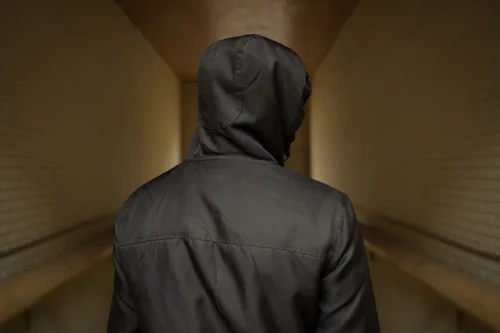How To Taper Off Alcohol: Key Strategies and Tips
- Posted by host
- Posted in Sober living

I would go with hard seltzers because they have a decent amount of water in them and I don’t really enjoy drinking them, so I drink them more slowly. Find a reason to stay sober and keep that in mind as you go through this process. From what I understand, most hospitals WILL give you 3-5 days worth of benzos to taper with at home.
- Finding a different, more healthy way to unload stress may go a long way in helping someone succeed in cutting back on their alcohol use.
- Your addicted brain may use this as an excuse to increase your dosage.
- Alternative stress-relieving activities, such as exercise, hobbies, or mindfulness practices, can also help individuals cope with cravings and promote overall well-being 4.
- These can indicate a life threatening condition called delirium tremens.
- When done under medical supervision, tapering off alcohol has few downsides.
- Now that you’ve successfully completed the detoxification process, it’s time to build your sobriety toolkit through treatment.
How to Gradually Stop Drinking
- But deciding to cut back on drinking is much more important than the length of your alcohol taper.
- Understanding the severity of alcohol withdrawal underscores the importance of seeking professional help and support when trying to wean off alcohol.
- We do not and have never accepted fees for referring someone to a particular center.
- “Having people who are going to do it with you or who are going to check in on you to see if you need support around that new choice I think is very, very critical,” says Carr.
- Once your alcohol tapering schedule is complete, maintenance begins.
- It is important to note that alcohol tapers are generally not recommended as the best way to stop using alcohol.
- If you notice severe hallucinations, extreme brain fog, the world slows down around you; you feel drunk when you’re not, you may have warning signs of delirium tremens (DTs).
That said, tapering off alcohol doesn’t completely eliminate withdrawal symptoms. Alcohol withdrawal is dangerous and it’s important to be careful throughout the process. Getting curious about a life without alcohol is already an incredible step, and a healthier lifestyle is within reach. Quitting alcohol can be done safely, and it may be important for someone with a substance use problem. Chronic alcohol abuse can cause serious health problems, including heart and liver disease. An alcohol use disorder can also have an impact on your social, psychological, and financial health.
Practice Mindful Drinking
If you struggle to stop drinking, avoid places and situations that tempt you to drink alcohol. You may even ask your friends and family not to drink while around you. Reducing the amount of the chosen substance consumed daily is known as a direct taper, but it may not be effective for everyone. It is only advisable to direct taper if the preferred drink is beer with a low alcohol percentage. Discover 4 important things about relapse, including causes, prevention strategies, and effective treatment options.

This Season, Give Yourself the Gift of a Fresh Start.
- Thus, a user will likely seek out alcohol again to rid themselves of the uncomfortable withdrawal symptoms.
- Because he is a member of a support group that stresses the importance of anonymity at the public level, he does not use his photograph or his real name on this website.
- However, medical treatment is necessary to treat major symptoms of withdrawal.
- This can be achieved by drinking one less drink each day or by setting specific goals, such as only drinking on weekends.
- If you get moderate tremors or start hallucinating six hours after your last drink, you probably need to taper.
- My best advice on dealing with these is to buck it up, hug someone if possible, and try to distract yourself.
Programs such as inpatient or outpatient rehab, medical detox, individual or family therapy and support groups are available. Through these programs, our caring and dedicated staff can help you on your road to recovery. Licensed medical professionals and highly qualified addiction specialists at The Recovery Village Cherry Hill at Cooper can help guide you https://ecosoberhouse.com/ toward a life without alcohol. Creating a tapering schedule you can stick with is a crucial part of weaning yourself off alcohol. The best schedule varies based on how much you drink each day and your overall health.
How To Taper Off Alcohol
Generally, alcohol-free days are better towards the end of a gradual reduction, not towards the beginning. Remember that everyone’s journey to sobriety is unique, and it’s important weaning off alcohol to find the support and strategies that work best for you. Alongside professional help, developing healthy habits, avoiding triggers, and seeking support from friends and family can contribute to a successful alcohol tapering process.


Start by estimating how much you drink on a daily basis—and be honest with yourself. It can help to make use of standard drink measurements, as mentioned above. Then come up with a reduction rate you think will be safe, and that you can stick to. Whether or not you are a journaler, try to find ways to acknowledge the changes you’ve made, however incremental. “I tell patients to think about it like a science experiment where we can learn about what works and what doesn’t,” says Collins.
Tapering off Alcohol: What You Need To Know
This means that there is little data about the best way to taper your drinking. However, some groups have published tapering examples to assist those trying to quit drinking. Direct tapering is not recommended for liquor drinkers as it is challenging to measure amounts and Oxford House can result in binge drinking. Additionally, mixed drinks may contain sugar or other additives that could exacerbate withdrawal symptoms and should be avoided during the taper. Despite the challenges, tapering off alcohol can lead to significant health improvements and overall quality of life.

Tapering off is a standard medical practice for many other drugs. Before you begin an alcohol taper, a little preparation can go a long way, especially when it involves handling your triggers and tracking how much you drink. Remember your motivation for cutting back and set realistic goals.
- Therefore, seeking professional care to develop a customized tapering strategy is highly recommended.
- Avoid taking prescription drugs that your doctor hasn’t prescribed to you.
- It’s important to note that some individuals may not experience any withdrawal symptoms, while others may experience symptoms at lower blood alcohol concentrations than usual 6.
- When GABA opens the channel to a negative charge, ethanol keeps that channel open for longer, leading to feelings of sedation, muscle relaxation, and other depressant-like effects.
- However, tapering can be dangerous if you have severe AUD, leading to uncomfortable withdrawal symptoms.
- Alcohol is likely the most widely used recreational substance in the world.
I couldn’t locate a study on people who tapered at home with alcohol, because it’s kind of hard to assess the topic, and no rehabs are detoxing people with alcohol. The chance of experiencing severe withdrawal symptoms increases if you’ve had them before, or if you’re older. Make sure they’re aware of the severe withdrawal symptoms that can occur and tell them what to do if you experience them (get a drink and possibly call 911). If you have a seizure, the best thing they can do is stay with you, move any hazardous objects out of the way, prevent you from falling on anything hard, and call 911. They shouldn’t hold you down and there’s no real need to worry about choking on your tongue.
